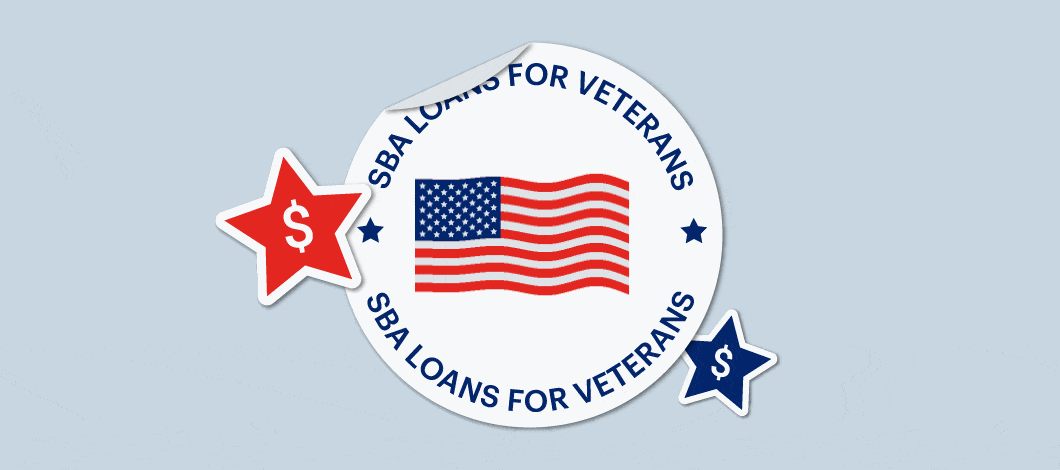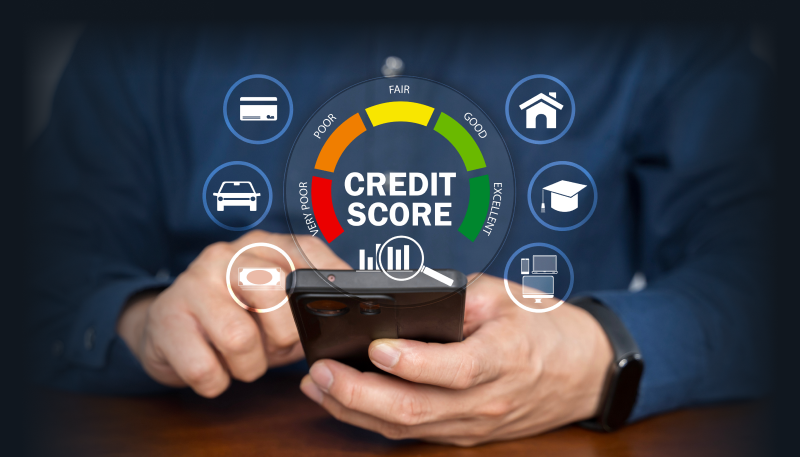When it comes to buying a home, understanding the types of mortgage loans available is essential for making the best financial decision. Mortgage loans come in many forms, each tailored to fit different financial situations, credit profiles, and home-buying goals. Navigating this complex landscape can be overwhelming, but knowing the basics about each type can help you find the right mortgage that suits your needs and budget.
Key Takeaways:
- Mortgage loans vary widely depending on the terms, interest rates, and borrower qualifications.
- Conventional, FHA, VA, USDA, and jumbo loans are some of the most common types.
- Choosing the right mortgage depends on your financial profile, down payment amount, and long-term homeownership goals.
In this comprehensive article, we will explore the various types of mortgage loans available, including their pros, cons, eligibility requirements, and who they are best suited for. By the end, you’ll be well-equipped to start your journey toward homeownership with confidence.
What Is a Mortgage Loan?
A mortgage loan is a loan specifically designed to help individuals purchase real estate. In this agreement, the property itself acts as collateral. The borrower agrees to pay back the loan amount, with interest, over a set period called the loan term. Typically, mortgage loans are repaid over 15, 20, or 30 years through monthly payments that include principal, interest, property taxes, and insurance.
What Are the Different Types of Mortgage Loans?
Mortgage loans can be broadly categorized into government-backed loans and conventional loans. Let’s explore these categories and the specific types under each.
Conventional Loans
Conventional loans are not insured or guaranteed by the government. They are offered by private lenders, such as banks, credit unions, or mortgage companies.
1. Conforming Loans
- Definition: Loans that meet the standards set by Fannie Mae and Freddie Mac, the government-sponsored enterprises that buy mortgages from lenders.
- Loan Limits: Usually limited to $726,200 (2024 limit, varies by location).
- Pros: Typically offer competitive interest rates and flexible terms.
- Cons: Require good credit scores and a solid financial profile.
- Best For: Borrowers with strong credit and stable income.
2. Non-Conforming Loans (Jumbo Loans)
- Definition: Loans that exceed conforming loan limits.
- Loan Limits: Above $726,200 (can be much higher depending on the property and location).
- Pros: Allow purchase of expensive homes.
- Cons: Often require higher credit scores, larger down payments, and higher interest rates.
- Best For: Buyers of luxury homes or high-value properties.
Government-Backed Loans
Government-backed loans are insured or guaranteed by federal agencies, designed to help borrowers who might not qualify for conventional loans.
3. FHA Loans (Federal Housing Administration)
- Definition: Loans insured by the FHA to encourage lenders to offer mortgages to borrowers with lower credit scores or smaller down payments.
- Down Payment: As low as 3.5%.
- Credit Score: Typically 580 or higher.
- Pros: Easier to qualify for, lower down payment.
- Cons: Mortgage insurance premiums required for the life of the loan.
- Best For: First-time homebuyers, borrowers with less-than-perfect credit.
4. VA Loans (Department of Veterans Affairs)

- Definition: Loans guaranteed by the VA for eligible veterans, active military members, and some spouses.
- Down Payment: Often zero.
- Credit Score: No official minimum, but lenders may require 620+.
- Pros: No down payment, no private mortgage insurance (PMI).
- Cons: Must meet military service eligibility requirements.
- Best For: Veterans and active military personnel.
5. USDA Loans (United States Department of Agriculture)
- Definition: Loans guaranteed by the USDA for rural and suburban homebuyers who meet income requirements.
- Down Payment: Often zero.
- Credit Score: Typically 640 or higher.
- Pros: No down payment, low mortgage insurance costs.
- Cons: Limited to eligible rural areas and income limits.
- Best For: Low-to-moderate income borrowers buying in eligible rural areas.
Other Types of Mortgage Loans
6. Adjustable-Rate Mortgages (ARMs)
- Definition: Loans with an interest rate that adjusts periodically based on a benchmark rate.
- Terms: Usually fixed for 3, 5, 7, or 10 years, then adjust annually.
- Pros: Lower initial interest rates.
- Cons: Risk of higher payments when rates adjust.
- Best For: Borrowers planning to sell or refinance before rates adjust.
7. Interest-Only Mortgages
- Definition: Borrowers pay only interest for a set period (usually 5-10 years), then start paying principal plus interest.
- Pros: Lower initial payments.
- Cons: Payments increase significantly after the interest-only period.
- Best For: Borrowers with fluctuating income or expecting future financial improvement.
8. Balloon Mortgages
- Definition: Short-term loans with low monthly payments but a large “balloon” payment at the end.
- Pros: Lower initial payments.
- Cons: Large lump-sum payment due at maturity.
- Best For: Borrowers planning to sell or refinance before the balloon payment is due.
How to Choose the Right Mortgage Loan?
Choosing the right mortgage depends on multiple factors:
- Credit Score: Determines loan eligibility and interest rates.
- Down Payment: Amount available upfront can narrow your options.
- Loan Term: How long you want to repay the loan.
- Income Stability: Influences approval chances.
- Future Plans: Whether you plan to stay long-term or refinance.
What Are the Benefits and Drawbacks of Different Mortgage Loans?
| Loan Type | Benefits | Drawbacks |
|---|---|---|
| Conventional | Competitive rates, flexible | Requires strong credit |
| FHA | Low down payment, easier qualify | Mortgage insurance required |
| VA | No down payment or PMI | Military eligibility required |
| USDA | No down payment, low costs | Limited to rural areas |
| Jumbo | Finance expensive homes | Higher credit & down payment |
| ARM | Lower initial rates | Rate uncertainty |
| Interest-Only | Low early payments | Higher later payments |
| Balloon | Lower initial payments | Large lump sum due |
How to Qualify for a Mortgage Loan: A Step-by-Step Guide
Description:
This article will provide a comprehensive walkthrough of the mortgage qualification process, explaining the key factors lenders consider when approving a loan application. Topics include credit score requirements, debt-to-income ratio, employment history, income verification, and documentation needed. It will also offer practical tips on how potential homebuyers can improve their credit, reduce debt, and prepare financially to increase their chances of qualifying for the best mortgage rates. Special focus will be on differences between conventional, FHA, VA, and USDA loan qualifications.
What Is Mortgage Pre-Approval and Why Is It Important?
Description:
Pre-approval is a critical first step in the home-buying process. This article will explain what mortgage pre-approval means, how it differs from pre-qualification, and why getting pre-approved gives buyers a competitive advantage. It will break down the documents required, the role of credit checks, and how lenders determine pre-approved amounts. Additionally, the article will discuss how pre-approval helps set realistic budget expectations and strengthens your negotiating position with sellers.
Fixed-Rate vs. Adjustable-Rate Mortgages: Which One Is Right for You?
Description:
This detailed comparison will explore the pros and cons of fixed-rate and adjustable-rate mortgages (ARMs). It will cover how each works, typical loan terms, interest rate behaviors, payment stability, and risk factors. The article will provide real-world examples showing which type of borrower might benefit more from each mortgage, considering factors like how long they plan to stay in the home, income stability, and market interest rate forecasts. It will also explain common ARM structures (e.g., 5/1, 7/1 ARMs).
Understanding Mortgage Insurance: What It Is and How Much It Costs
Description:
Mortgage insurance is often misunderstood and can be a surprise expense for homebuyers. This article will clarify the differences between private mortgage insurance (PMI) for conventional loans, FHA mortgage insurance premiums (MIP), and VA loan funding fees. It will explain when mortgage insurance is required, how it affects monthly payments, and strategies for removing mortgage insurance once sufficient equity is built. The article will also include cost examples to help buyers budget accordingly.
The Pros and Cons of Jumbo Loans: Financing High-Value Homes
Description:
For buyers looking at luxury or high-priced properties, jumbo loans provide necessary financing beyond conforming loan limits. This article will explore jumbo loan requirements, including credit scores, down payments, and income verification. It will detail the typical interest rates and fees compared to conventional loans and discuss the financial risks and benefits of taking on a jumbo loan. Additionally, it will cover the impact of jumbo loans on monthly payments and how to qualify.
How to Refinance Your Mortgage: A Complete Guide

Description:
Refinancing can be a powerful financial tool, but it’s important to know when and how to do it effectively. This article will cover different reasons to refinance, such as lowering interest rates, shortening loan terms, switching from an ARM to a fixed-rate mortgage, or tapping into home equity. It will walk through the refinancing process, required documentation, associated costs, and tips for evaluating whether refinancing makes financial sense. Common refinancing pitfalls will also be highlighted.
First-Time Homebuyer Programs and Loans: What You Need to Know
Description:
Many first-time buyers don’t realize there are special loan programs and assistance options designed to help them enter the housing market. This article will outline federal, state, and local programs, including down payment assistance, tax credits, and favorable loan terms. It will explain eligibility criteria for FHA, VA, and USDA loans targeted at first-time buyers and provide advice on how to find and apply for these programs. It will also include tips on navigating the buying process for novices.
What Is a Mortgage Broker, and Should You Use One?
Description:
This article will explain the role of a mortgage broker as an intermediary between borrowers and lenders. It will discuss how brokers help shop around for the best loan products, simplify paperwork, and negotiate terms. The pros and cons of using a broker versus going directly to a bank or lender will be examined. It will also cover broker fees, licensing, and how to choose a trustworthy mortgage broker.
How Does Your Credit Score Affect Your Mortgage Interest Rate?
Description:
This article will provide an in-depth look at how credit scores impact mortgage approval and the interest rates offered by lenders. It will explain credit score ranges, what factors influence your score, and how different score levels translate into real differences in interest rates and monthly payments. Tips for improving credit scores before applying for a mortgage will be included, along with a discussion of the impact of credit inquiries and credit mix.
The Impact of Down Payment Size on Your Mortgage Loan
Description:
Down payment size can dramatically affect Mortgage terms and affordability. This article will analyze how different down payment amounts (e.g., 3%, 5%, 10%, 20%) influence monthly payments, mortgage insurance requirements, interest rates, and loan eligibility. It will also explain the benefits of a larger down payment, such as reduced loan-to-value (LTV) ratios and improved chances of loan approval. Creative ways to save or source down payment funds will be covered.
Also Read : How Do Student Loans Impact Your Financial Future?
Conclusion
Understanding the different types of mortgage loans available is critical for making an informed decision when purchasing a home. Each loan type serves a specific purpose and caters to different borrower profiles. Conventional loans are ideal for borrowers with good credit and stable incomes, while government-backed loans like FHA, VA, and USDA loans help those who might face challenges qualifying for traditional financing. Meanwhile, specialized loans like jumbo, adjustable-rate, and interest-only mortgages offer solutions for unique financial situations and goals.
Ultimately, choosing the right mortgage requires evaluating your financial situation, long-term plans, and eligibility. Working with a trusted mortgage professional can help you navigate these options and select the best loan to achieve your homeownership dreams.
FAQs
1. What is the difference between a fixed-rate and adjustable-rate mortgage?
A fixed-rate mortgage has a constant interest rate for the entire loan term, providing predictable monthly payments. An adjustable-rate mortgage (ARM) has a rate that changes periodically, usually starting lower but with the risk of increasing later.
2. Can I qualify for a mortgage with bad credit?
Yes, but options may be limited. FHA loans are designed for borrowers with lower credit scores, while some lenders offer subprime or non-conventional loans with higher interest rates.
3. How much down payment do I need?
It depends on the loan type. Conventional loans usually require 5-20%, FHA loans require as little as 3.5%, and VA or USDA loans may require no down payment.
4. What are closing costs, and how much should I expect?
Closing costs are fees paid at the closing of a real estate transaction, typically ranging from 2% to 5% of the loan amount. They cover services like appraisal, title insurance, and loan processing.
5. What is mortgage insurance, and when do I need it?
Mortgage insurance protects the lender if you default on the loan. It’s required on FHA loans and conventional loans with less than 20% down payment.
6. Can I refinance my mortgage later?
Yes, refinancing lets you replace your existing mortgage with a new one, often to secure a lower interest rate, change loan terms, or access home equity.
7. How does my credit score affect my mortgage?
A higher credit score usually means better loan terms and lower interest rates. Poor credit can increase borrowing costs or limit loan options.



